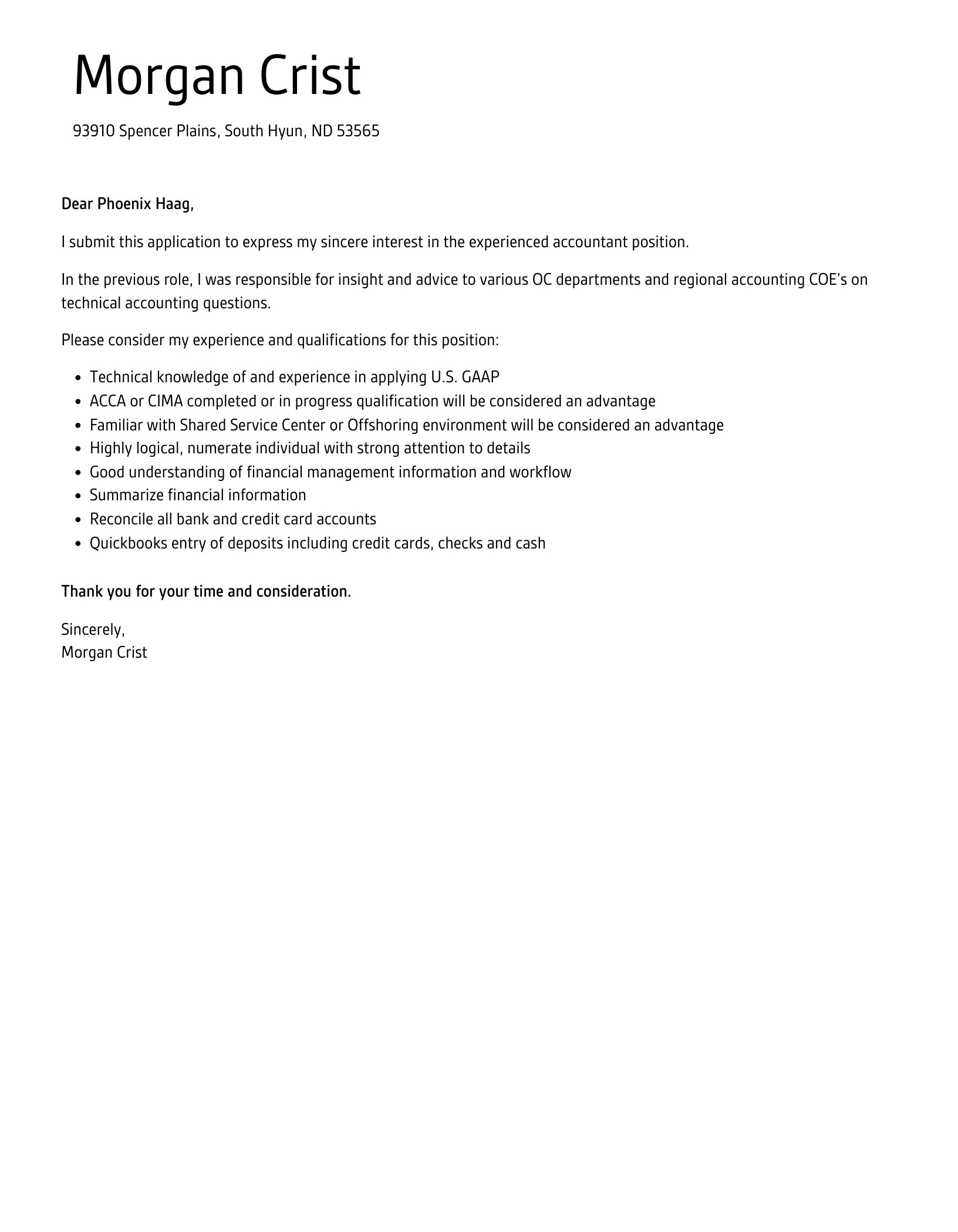Understanding the Importance of Accountant Cover Letters
In the competitive world of accounting, a well-crafted cover letter is your first opportunity to make a positive impression on potential employers. It serves as a crucial introduction, providing context to your resume and allowing you to highlight your skills, experience, and personality in a way that a resume alone cannot. This document isn’t merely a formality; it’s a strategic tool that can significantly boost your chances of landing an interview and ultimately, securing your desired accounting position. It gives you the space to showcase your unique value proposition and explain why you are the ideal candidate for the role.
Why a Strong Cover Letter Matters
A strong cover letter demonstrates your genuine interest in the specific job and company. It allows you to personalize your application, showing the hiring manager that you’ve taken the time to understand their needs and how your qualifications align. It’s also an excellent platform to address any potential gaps in your resume, such as career changes or periods of unemployment, proactively managing the narrative of your professional journey. By showcasing your communication skills and attention to detail, you set yourself apart from other applicants who may rely solely on their resumes.
Cover Letter vs. Resume
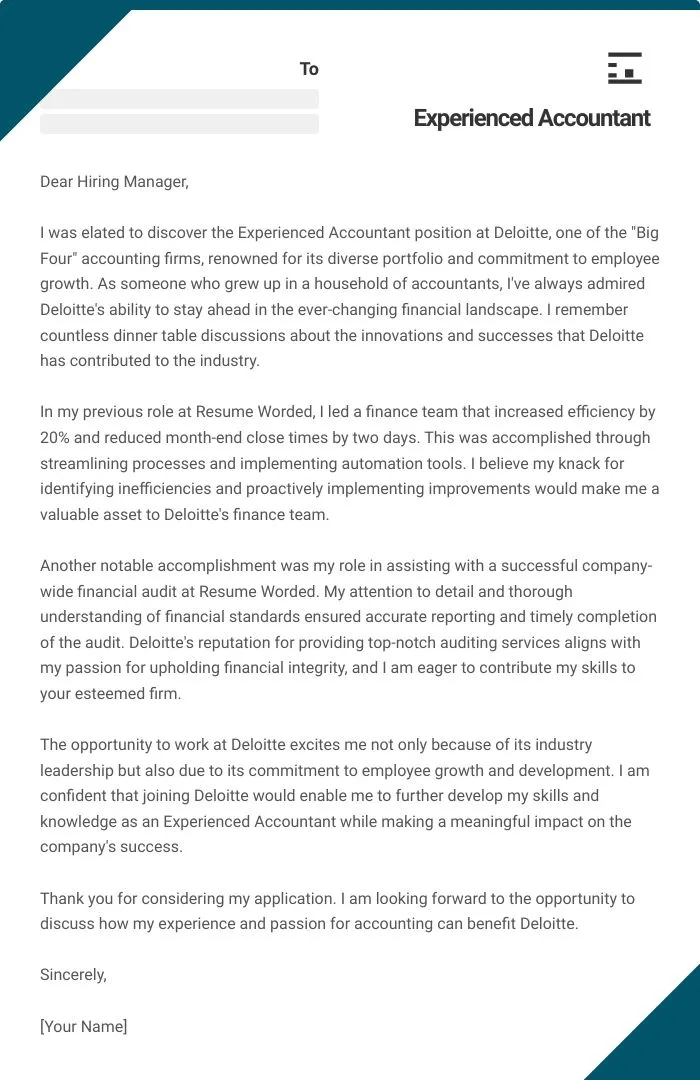
While your resume provides a factual overview of your experience and qualifications, the cover letter offers a narrative. The resume lists your accomplishments, skills, and education, whereas the cover letter explains why these elements make you a strong fit for the role. Use your cover letter to elaborate on your achievements, provide specific examples, and demonstrate your enthusiasm for the position and the company. It’s an opportunity to showcase your personality and communication style, which can be a deciding factor in the hiring process. Think of your resume as the ‘what’ and your cover letter as the ‘why’ and ‘how’.
Top 5 Accountant Cover Letter Examples
Below are five different cover letter examples tailored to various levels of experience and career situations within the accounting field. Each example highlights different aspects of an accountant’s skills and experience to help you tailor your own cover letter effectively. Use these examples as a guide to crafting your own, ensuring you adapt the content to reflect your unique qualifications and the specific requirements of the job you are applying for. These examples provide a starting point, offering diverse approaches to demonstrate your capabilities and make a lasting impression on potential employers.
Example 1: The Enthusiastic Professional
This example is perfect for candidates who want to express their passion for accounting and their eagerness to contribute to a company. It emphasizes enthusiasm, strong work ethic, and a proactive approach to problem-solving. The language used is dynamic and engaging, focusing on the candidate’s excitement about the opportunity and their commitment to achieving results. The key is to let your personality shine and show that you’re not just qualified, but also a great team player who brings positive energy to the workplace. The tone should be optimistic and confident.
Key Elements of This Example
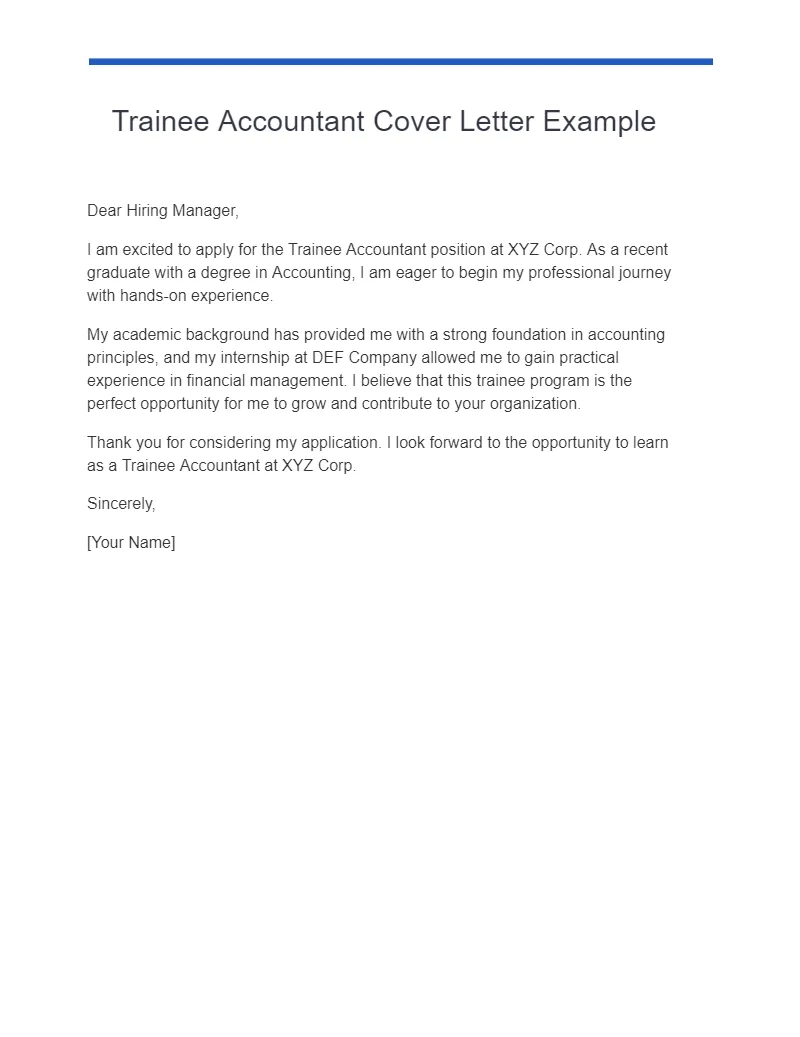
Focus on positive language and a proactive tone. Highlight specific projects or experiences that showcase enthusiasm. Express a strong desire to learn and grow within the company. Mention any relevant certifications or training that demonstrate your commitment to the field.
Example 2: The Results-Oriented Accountant
This example is ideal for candidates who want to highlight their ability to drive tangible results in previous roles. It focuses on quantifiable achievements, such as cost savings, efficiency improvements, or successful project completions. The language should be direct and data-driven, demonstrating a clear understanding of financial metrics and a commitment to achieving business objectives. Emphasize your experience with financial reporting, budgeting, and forecasting, along with any successes in process improvements or regulatory compliance.
Key Elements of This Example
Use numbers and metrics to quantify your accomplishments. Focus on results achieved, not just tasks performed. Showcase experience with financial analysis and strategic planning. Mention any awards or recognition received for your performance.
Example 3: The Detail-Oriented Accountant
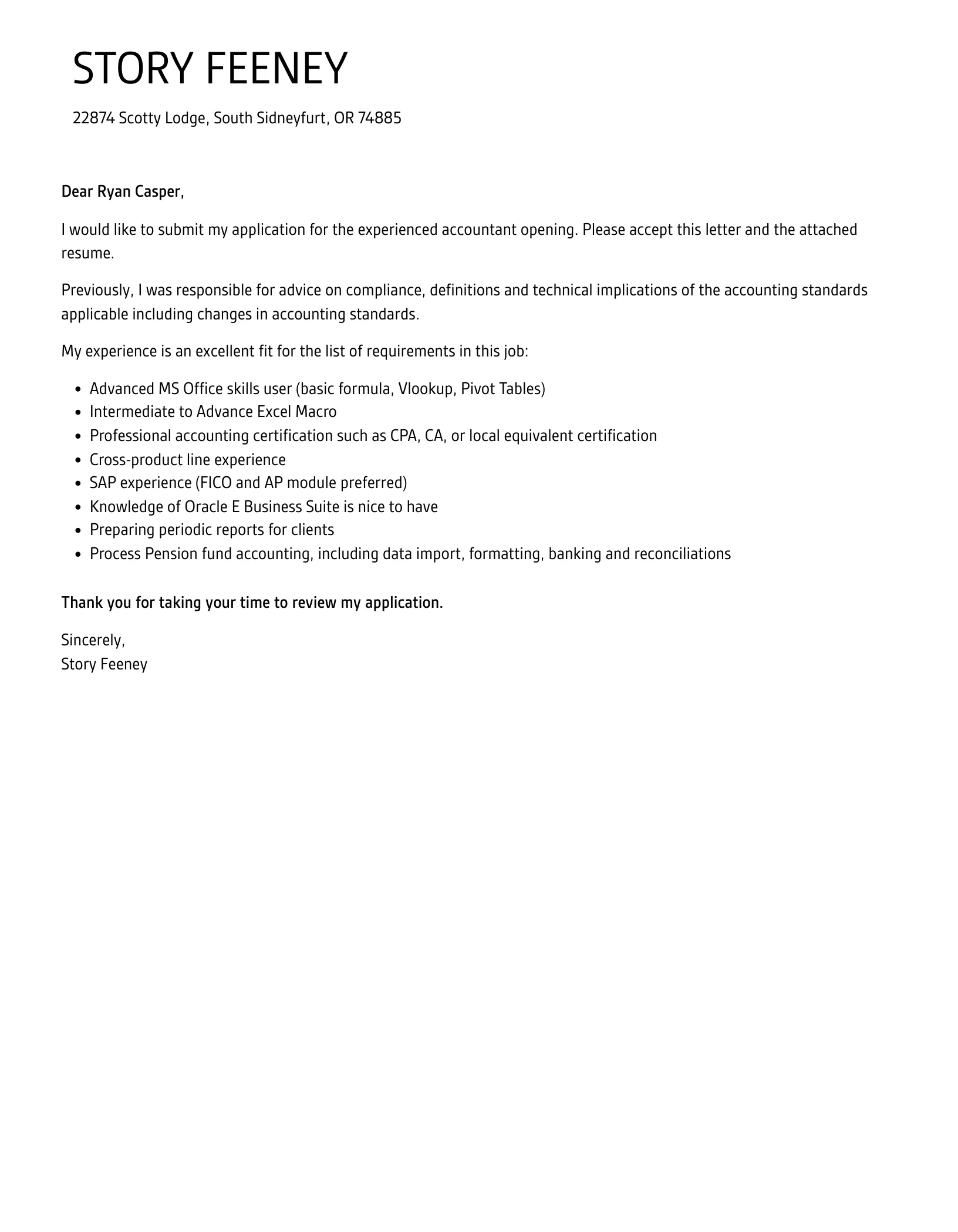
This example is tailored for accountants who want to emphasize their meticulous approach and strong attention to detail. It highlights experience with data accuracy, compliance, and adherence to accounting standards. Use language that reflects precision, accuracy, and a commitment to maintaining high standards in financial reporting. Showcasing your ability to identify and correct errors, as well as your experience with auditing and internal controls, is crucial. The focus should be on your reliability and commitment to accuracy.
Key Elements of This Example
Highlight experience with auditing, reconciliation, and financial statement preparation. Mention any certifications related to accounting standards or compliance. Emphasize your ability to identify and resolve discrepancies. Showcase your understanding of accounting software and tools.
Example 4: The Experienced Senior Accountant
This example is geared towards senior-level accountants looking to leverage their extensive experience. It should showcase leadership abilities, strategic thinking, and a proven track record of managing accounting teams or significant projects. Demonstrate your understanding of complex financial concepts, regulatory requirements, and your ability to mentor and guide junior staff. The language should convey expertise and a proactive approach to driving financial strategy and improvements.
Key Elements of This Example
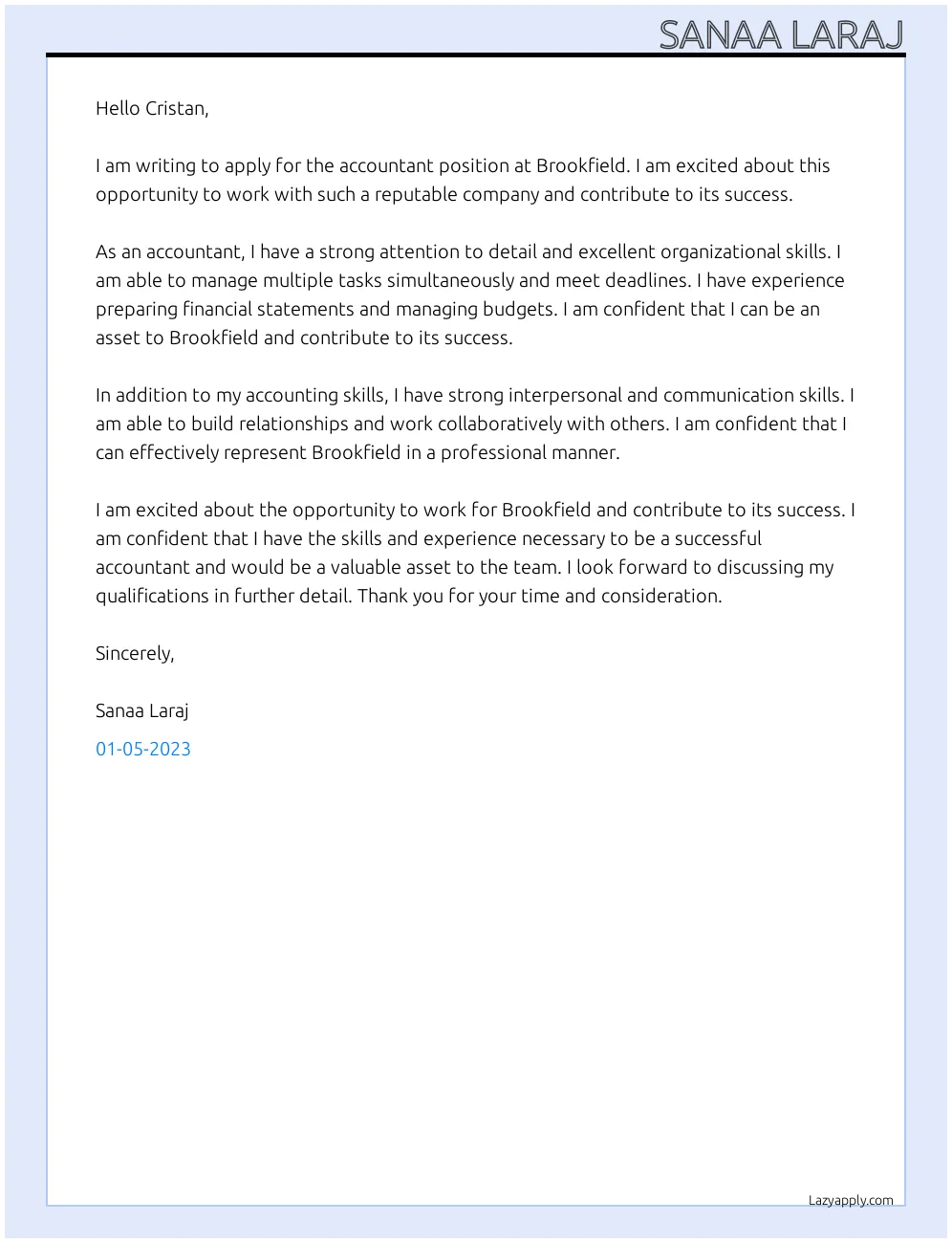
Highlight leadership experience and team management skills. Showcase experience with strategic financial planning and analysis. Mention experience with complex accounting issues, such as mergers and acquisitions. Emphasize your understanding of industry-specific regulations and best practices.
Example 5: The Career Changer Accountant
This example is designed for individuals transitioning into accounting from another field. The focus should be on transferable skills, such as problem-solving, analytical abilities, and attention to detail. Frame your previous experience in a way that demonstrates its relevance to accounting, and highlight any accounting-related courses, certifications, or professional development activities you’ve undertaken. Demonstrate your passion for accounting and your commitment to making a successful career change.
Key Elements of This Example
Focus on transferable skills from your previous career. Highlight any relevant coursework or certifications in accounting. Express a strong desire to learn and adapt to the accounting profession. Show enthusiasm for the specific role and company.
Crafting Your Own Accountant Cover Letter
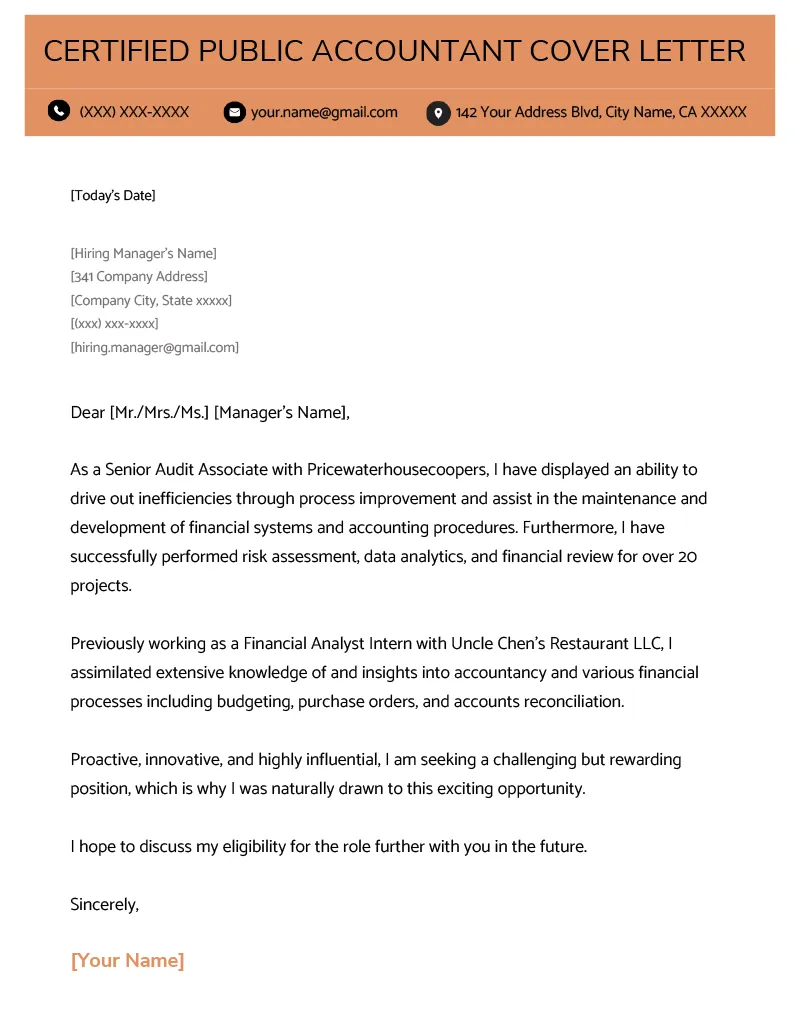
When crafting your own cover letter, it’s essential to tailor it to the specific job and company. Customize each letter to demonstrate your understanding of the role’s requirements and the company’s values. Research the company thoroughly, paying attention to its mission, culture, and recent news. Use the job description as a guide, and align your skills and experience with the key qualifications listed. Always proofread your cover letter carefully to avoid errors and ensure a polished presentation.
Formatting and Structure
Use a professional and easy-to-read format. Start with your contact information, the date, and the hiring manager’s information (if available). Address the hiring manager by name, if possible. The body of the letter should consist of three to four paragraphs: an introduction, a few paragraphs highlighting your skills and experience, and a concluding paragraph. Keep the tone professional, and use clear, concise language. Avoid jargon that the hiring manager may not understand. Use a readable font like Arial or Times New Roman, and maintain consistent formatting throughout the document.
Key Sections to Include
Your introduction should immediately grab the reader’s attention, stating the position you’re applying for and where you found the opportunity. Highlight your key qualifications and express your enthusiasm for the role. In the body paragraphs, elaborate on your relevant skills and experience, providing specific examples of your achievements. Use keywords from the job description to show how you meet the employer’s needs. Your conclusion should summarize your interest in the position, reiterate your key strengths, and express your eagerness for an interview. Always include a call to action, such as ‘I look forward to the opportunity to discuss my qualifications further.’
Tailoring Your Letter
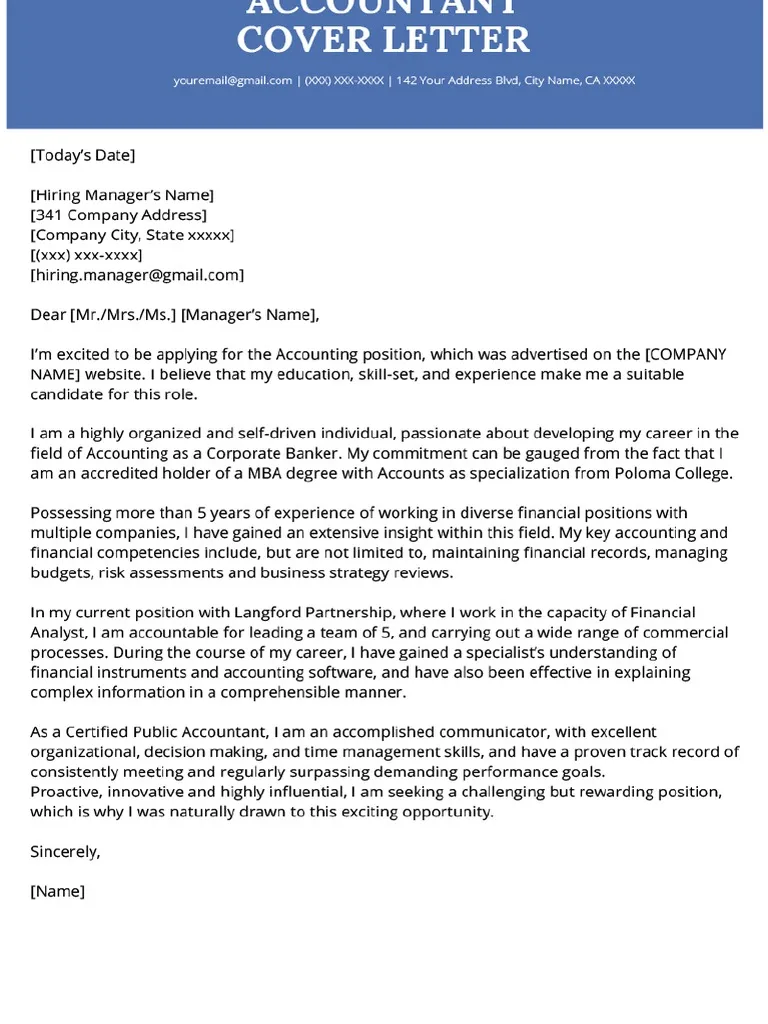
Customization is critical to making your cover letter stand out. Review the job description carefully and identify the key skills and qualifications the employer seeks. Modify your letter to highlight your relevant experiences and accomplishments that align with those requirements. Research the company and understand its values, mission, and culture. Personalize your letter to demonstrate your understanding of the company’s needs and your genuine interest in the role. Use the company’s name and mention specific aspects of the company to show you’ve done your research.
Common Mistakes to Avoid
Avoid generic cover letters that are not tailored to the specific job or company. Ensure you don’t include grammatical errors or typos, as these can create a negative impression. Don’t simply repeat information from your resume; provide additional context and elaborate on your accomplishments. Avoid using overly casual language or slang. Do not be vague about your achievements; provide specific examples and quantifiable results. Avoid negative language or criticizing previous employers. Always proofread your cover letter to catch any errors before submitting.
Final Thoughts and Next Steps
A well-written cover letter can significantly improve your chances of securing an interview in the competitive field of accounting. By tailoring your letter to the specific job and company, highlighting your relevant skills and experiences, and avoiding common mistakes, you can make a strong impression on potential employers. Use the examples provided as a guide, and remember to always proofread your work. Good luck with your job search.
